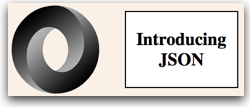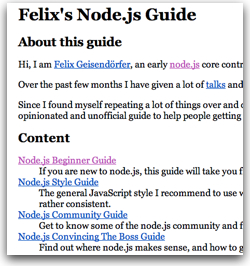Just a guy in Vermont trying to connect all the dots...
Author's posts
Apr 22
Two New Amazon.com Reviews of Seven Deadliest Unified Communications Attacks
- Seven Deadliest Unified Communications Attacks, by Mario Camillen on April 3, 2011
- Required Reading for UC and VoIP Professionals, by Alan Johnston on April 22, 2011
I don't know Mario Camillen, but I definitely appreciate his taking the time to write about the book and for giving it the high rating he did.
I do know Alan Johnston and in fact recently wrote about his new fiction ebook here on this blog. I've known Alan for years through IETF and other SIP circles and will actually be seeing him next week at the SIPNOC event outside of Washington, D.C. Having said all of that, Alan certainly did not have to write the high praise he did... and I certainly do value his comments given that Alan is the author of another VoIP security book and was also heavily involved with the ZRTP protocol.
I greatly appreciate the reviews from both Mario and Alan because reviews definitely do matter ... and do influence buying behavior.
To that end, if you have read Seven Deadliest Unified Communications Attacks, would you please consider writing a review on Amazon.com? It would be great if more readers did. (Thanks in advance if you do.)
Apr 20
Use Node.js to Build Your Own SMS or IM Interface to Twitter
 Would you like to create your own SMS interface to Twitter? To be able to post your own tweets via SMS? Or would you like to have an IM interface to Twitter using Jabber, GoogleTalk, AIM, MSN, Yahoo, etc?
Would you like to create your own SMS interface to Twitter? To be able to post your own tweets via SMS? Or would you like to have an IM interface to Twitter using Jabber, GoogleTalk, AIM, MSN, Yahoo, etc?
And would you like to do all this using Node.js?
Sure, Twitter already offers its own SMS interface… but hey, why not build your own to play with Node.js?
That’s exactly what my colleague Justin Dupree did and then wrote up in this great blog post:
I love it! I mean… combine 3 of my favorite passions: Twitter, Tropo and Node.js… mix them together, shake them a bit and out pops a very cool mashup that lets you have your own interface to Twitter using SMS or IM.
Kudos to Justin for the great way he walked through the code in the post… and also made the full Tropo-Node-Twitter code available on Github. I’m looking forward to playing with it more and seeing what else I can do with it…
P.S. I’m naturally found on Twitter at twitter.com/danyork.
Apr 16
Video: How To Create a Simple DocBook document using oXygen XML editor
Recently I’ve needed to get back into creating some DocBook documents and needed to refresh my knowledge of the latest tools. Back about 10 years ago, I did a great amount with DocBook and spoke about single-source publishing at conferences and created a few tools and vimrc macros. However, since that time I’ve not done much with DocBook – and obviously the tools and toolchain have evolved a bit.
In looking around, I’m quite impressed by what the oXygen XML editor can do with DocBook. oXygen looks quite powerful! It’s also got a bit of a price tag… on the other hand, I know that putting together the pieces to create your own toolchain can take a bit of work. The ever-present tradeoff between your time and your money…
I think I’ll certainly try out the 30-day trial to see what the writing experience is like.
This video shows how to create a simple DocBook document using oXygen and certainly makes a compelling argument for how easy the editor can be:
Do any of you use oXygen? Have you found it worth the price?
Apr 11
And So The Groklaw Era Draws To A Close May 16, 2011…
 And so must all good things come to an end… Pamela Jones announced over the weekend that she would be ending new posts to Groklaw on May 16, 2011, the eighth anniversary of the site.
And so must all good things come to an end… Pamela Jones announced over the weekend that she would be ending new posts to Groklaw on May 16, 2011, the eighth anniversary of the site.
For those of us who spent a good bit of time in the Linux world, Groklaw became a critical resource to stay up on the latest follies in the ongoing SCO lawsuit. “PJ”, as Pamela Jones preferred to be called, and the community of passionate helpers she soon attracted were there to rapidly research and debunk any claims that SCO put forward.
SCO has faded to pretty much irrelevance in 2011… but 8 years ago their lawsuit was extremely serious and a cause for great concern for anyone working with Linux. At the time of the initial lawsuit, I was a product manager at Mitel for a Linux-based product, so the whole issue was very definitely something I paid attention to… and Groklaw was definitely on my frequent reading list.
[NOTE: If you have never heard of Groklaw, I would start with the mission statement and the various links off that page.]
And now PJ writes:
In a simple sentence, the reason is this: the crisis SCO initiated over Linux is over, and Linux won. SCO as we knew it is no more.
There will be other battles, and there already are, because the same people that propped SCO up are still going to try to destroy Linux, but the battlefield has shifted, and I don’t feel Groklaw is needed in the new battlefield the way it was in the SCO v. Linux wars.
Remember that when I started Groklaw, I had no intention to create something as huge as Groklaw became. I really was just trying to learn how to blog. When all of you showed up, I saw what we could accomplish together, and we did. But to do it, I had to set aside a lot of things that are important to me too. I’d like to go back to being nobody, just living a normal life again.
I kept going all these years because when SCO attacked in the media and in the courtrooms, there was nobody to do what we did. Only the community could have answered SCO, technically, because you guys lived the history of UNIX and Linux and you knew what they were saying was not true. So we spoke up and explained over and over until everyone understood.
And she ends with:
I always told you that I didn’t do Groklaw for money or for fame or as a career move. I did it to be effective. That’s all I wanted. And I told you that when it was over, I’d go back to my normal pre-Groklaw life. And now you know by this decision that I told you the truth.
No matter what happens next, I know that we changed the course of history. How many people get to say that? I never expected it, frankly, and I am grinning just thinking about how much fun we’ve had doing it. Our work will be available for historians permanently, so the impact we had isn’t over today, and someday we’ll tell our grandkids that we were part of this, part of Groklaw. We are in the history books. Our work will continue as long as anyone cares about this unique time period in the history of computer software, a history that we are a part of forever. And that is a long, long time.
Thanks to you, PJ, for all the insane amount of work that you and your community did and continued to do. We all out in the larger community owe you all an incredible amount of gratitude and thanks… you helped shine the light into dark corners and helped provide a means to focus the energy and passion of the greater community. Without all that Groklaw did, the SCO follies might have gone much differently.
And kudos to you, PJ, for what I’m sure is an incredibly hard decision to put a period at the end of the sentence and end the era of Groklaw. It’s super easy to simply let a project continue… there is a certain inertia that is hard to fight… and so projects and organizations continue to go on and on, even when their reason for being is no longer there.
Thank you for all you and your community did – and best wishes for whatever comes next!
P.S. Her full blog post is very much worth a read… as well as the many comments.
Apr 04
Video: Douglass Crockford explains “The JSON Saga”
 While this video is from back in July 2009, it’s a great story around how JSON came to be and has some solid lessons in it for people developing new data formats:
While this video is from back in July 2009, it’s a great story around how JSON came to be and has some solid lessons in it for people developing new data formats:
Yahoo! thankfully provided a full transcript of the video on that page so that if you don’t have time to watch the video (I initially didn’t) you can simply scan down the text.
I enjoyed the emphasis on “less is more” and on the need to remove functionality to make it simpler. At one point Crockford says (taken from the transcript):
One of the key design goals behind JSON was minimalism. My idea was that the less we have to agree on in order to inter-operate, the more likely we’re going to be able to inter-operate well. If the interfaces are really simple, we can easily connect, and if the interfaces are really complicated, the likelihood that something’s going to go wrong goes way, way up. So I endeavored to make JSON as simple as possible.
I had a goal of being able to put JSON standard on the back of a business card. And this is the card. Come see me if you want one of these cards; it’s the JSON card, it’s got the JSON standard on the back.
He goes on at some length about XML, language design and much, much more. If you have 50 minutes to watch the video, it’s worth it. (Alternatively, the transcript is excellent.)
Apr 02
Meeting My Reviewer with the Oddest Review Headline ("Offal")
As I mentioned previously, though, I was quite surprised by one review headline entitled "Offal Is Not Awful, and the Seven Deadliest Attacks" and could honestly not even remotely figure out what my book had to do with offal (and it turned out to have nothing to do with it).
When I was down in Miami earlier this year for the ITEXPO conference, I had a chance to meet the reviewer in question, David Byrd of Broadsoft, and naturally I asked if he minded a picture being taken (he didn't):
Thanks again, David, for your kind words - and memorable headline!
Mar 31
SecureLogix Releases Report: Voice And Unified Communications State of Security 2011
To put this in perspective, SecureLogix sells solutions that monitor your network and protect your VoIP/UC systems. While that creates a fairly obvious bias for a report like this, it also means that they do have great data from literally hundreds of networks where their tools have been deployed.
They've done a nice job packaging up the data, providing very readable charts, including solution diagrams and listing all sorts of resources at the end. The report is available now from the NoJitter.com site:
http://www.nojitter.com/sponsoredcontent/view/cid/3900003
You need to login to the site to download it today, but the folks I know at SecureLogix say that they will also be making it available from their own site in a few months.
Sure, you have to read the report understanding that it is written from the viewpoint of a vendor with an interest in selling security solutions... but regardless it is definitely a worthwhile document to read through. Kudos to SecureLogix for creating this report - and I look forward to seeing how it changes and evolves in the years ahead.
P.S. I found it interesting that the report talked about modems, which is something I actually didn't even touch on in the book and don't really think of as "VoIP" or "UC"... However, they certainly are components of the larger network security area of concern.
Mar 31
Great Resource -> Felix’s Node.js Guide
 Want to learn more about Node.js? Felix Geisendörfer recently rolled out a site with a series of guides to help people get started:
Want to learn more about Node.js? Felix Geisendörfer recently rolled out a site with a series of guides to help people get started:
So far he has these guides available:
- Node.js Beginner Guide
- Node.js Style Guide
- Node.js Community Guide
- Node.js Convincing The Boss Guide
and promises more to come. He is nicely using a Github repo for the development of the guides and you can monitor that repo to see what is in development.
Documentation and training are always critical elements of helping people get started with a new language, so it’s great to see initiatives like this one. I’m definitely watching the Github repo and have been reading through his guides already.
Thanks, Felix, for putting these docs online!
Mar 30
Welcome!
Welcome to DanYork.me – at some point soon I’m planning to aggregate my various writing across the web into a common place. Stay tuned…
Mar 27
If you enjoyed 7 Deadliest UC Attacks, you may also like the fiction book "Counting From Zero"
It's a story... about an Internet security researcher named Mick O'Malley who recognizes the signs of an impending global "zero day" attack via a massive botnet... and how he discovers it... how the various forces out there conspire against him... how he and his allies fight back...
I don't know how it ends, yet, as I'm only 2/3rds of the way through it, but I'm enjoying the story so far quite a good bit.
I've known Alan for a good number of years mainly through IETF and SIP-related connections including the SIP Forum... we routinely meet up at various conferences and these days of course connect through social networks. While Alan's written a number of technical books related to the SIP protocol, this is his first foray into fiction and on his new blog site he explains the journey that brought him into self-publishing and the world of ebooks. I commend him on taking the leap and I look forward to seeing how it goes.
I've thought, too, of pursuing the fiction route myself at times... if I go back a couple of years, one of the best presentations I've given on VoIP security was one where I did away with all the traditional ways of talking about security and instead told a story called "The Saga of SysAdmin Steve". The story hit all the points I would have covered anyway, but in a way that was much more engaging... was much more memorable by the attendees... and was much more fun as a presenter. The challenge, of course, is that such a presentation can take a great amount more time to create. But it's certainly been on my mind lately to do more presentations and perhaps even some writing along those lines.
Meanwhile, I congratulate Alan on the launch of "Counting from Zero" and encourage you all to check out the book's website and Alan's blog and, if you are so inclined, to purchase a copy. I'm definitely enjoying the read so far.

